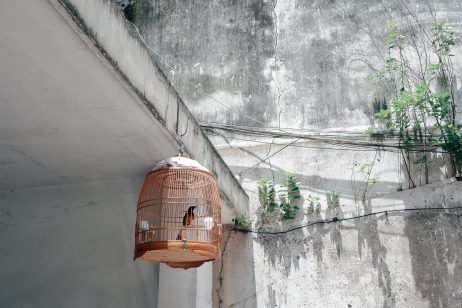Frontlist | 'Lust Not Lost', the latest English version of Indian 'Phoolsunghi'
Frontlist | 'Lust Not Lost', the latest English version of Indian 'Phoolsunghi'on Dec 02, 2020

The recent English translation of the novel “Phoolsunghi” reminds us of an entire culture that once surrounded Indian courtesans.
“Phoolsunghi,” a novel by Pandey Kapil, overflows with men’s desire toward women – not all women, but specifically Indian courtesans. While the original book, written in Bhojpuri, came out in 1977, the English translation was just released. This historical novel seeks to echo the spirit of regional culture and describe the changes that India was undergoing in the colonial period. What the book focuses on much more, however, is the small world of Indian courtesans. Well until the late colonial British period, courtesans played a significant role in the cultural life of various monarchs’ courts. “Cultural life” is no misplaced euphemism for sex life here – while the physical aspect must have been important as well, the more renowned courtesans were famous for their singing and dancing skills. Called tawaif in much of northern India, versatile in arts and etiquette, they would hold performances that used to be one of the central aspects of courtly entertainment. An Indian nobleman was once reported to have lost his entire fortune on funding the artistic shows of his favorite courtesan, the famed Janki Bai. That small world, with both its vices and virtues, is long gone – and it was mostly British rule that brought it to its end. The colonial administration and Christian missionaries fought against the institution of courtesans as immoral, and in that campaign they were gradually backed by a section of Indian society, including new municipal corporations. The gradual eclipse of the world of the tawaif is reflected in some literary works – not only “Phoolsunghi,” but also another novel, “Sevasadan/Bazaar-e-Husn,” by one of the best-known Hindu/Urdu writers, Premchand. And yet some of the courtesans left a lasting imprint on Indian culture. One of the most famous in that group was Gauhar Jaan. She became the first Indian artist to record her singing on a gramophone, right at the beginning of the 20th century (although born from an Armenian father and a British mother, Gauhar Jaan lived her entire life in India and is thus regarded as Indian). Another was Jaddan Bai, both a tawaif and a renowned singer, who went on to establish one of India’s first film production companies, Sangeet Movietone, in 1934. She not only produced movies but scripted them, composing music and dialogues for them. She also acted.
Authors
Bestseller
book news
Coronavirus
Covid-19
Frontlist Article
Frontlist Book News
Frontlist India news
Google news
Indian authors
Indian Novel
Indian Novels
Lust Not Lost
Phoolsunghi
Writers



.jpg)






.jpg)
.png)
.jpg)
.jpg)
.jpg)
.jpg)
.jpg)
.jpg)










Sorry! No comment found for this post.